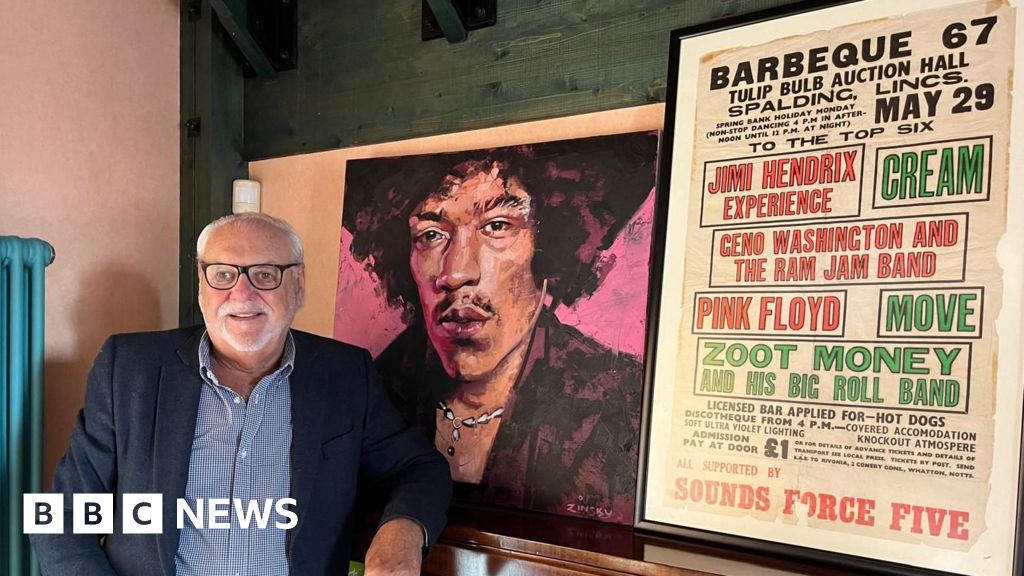Hollywood Workers Rally to Advocate for Local Production Tax Incentives

In a spirited demonstration of solidarity, Hollywood workers gathered for a pep rally on Sunday in Sun Valley, aiming to bolster their grassroots campaign to retain film production within Los Angeles. The event took place at SirReel Studios on Lankershim Boulevard, which generously opened its doors to the public for the rally that kicked off at 2 p.m. Attendees enjoyed food from local trucks and donned 'Stay in L.A.' merchandise while the atmosphere buzzed with speeches from local, state, and national politicians, as well as notable actors and writers.
The central objective of the rally was to rally support for Governor Gavin Newsomâs proposed tax incentive plan, which has been encapsulated in recently introduced legislation, AB 1138 and SB 630. This ambitious $750 million initiative aims to stem the tide of production leaving Los Angeles in search of cheaper filming alternatives, a concern that has become increasingly pressing as many industry professionals find themselves at risk of unemployment.
However, the path to securing these incentives may not be straightforward. LA City Councilwoman Nithya Raman, representing District 4, addressed the crowd with a candid perspective. âI want to tell you, a lot of people are against the tax credit because they think Hollywood is full of rich people,â she stated, emphasizing that the industry encompasses a diverse range of middle-class jobs. âItâs a middle-class industry of costumers, set decorators, drivers, camera operators, hairdressers, and caterers. Itâs all of us, and to think this is a hand-out for the rich is patently false. Weâre not asking for a hand-out. We are asking for the chance to work. We want to work in L.A., we want to live in L.A., we want to raise our families in L.A.â
Also speaking at the rally, Councilwoman Imelda Padilla of District 6 criticized her fellow council members for their lack of support. âOnly 4 of the 15 councilmembers are discussing this,â she asserted. âFor everyone who lives in L.A., I highly encourage you to call all council members. The minimum you need is eight to get anything done. Make sure itâs a priority. No one is going to say they oppose keeping jobs in Los Angeles, that I can assure you. Everyone wants a piece of this pie to help make this happen. Call every councilmember.â
Director Adam Bhala Lough, known for his work on 'Deepfaking Sam Altman,' proposed a bold idea during the rally, asserting that there should be no cap on state incentives for the industry. âThis debate over caps is a distraction. Itâs the stateâs way of fighting over crumbs,â he declared passionately. âCalifornia is missing an opportunity to take bold action, to make a direct investment. The U.K., France, and Canada invest cash in their industry. They take an equity stake and profit when films succeed. California has a $3.9 trillion GDP, but it sticks with soft money tax credits and wonders why productions are leaving. We need to think bigger.â He suggested that California should consider becoming a financier or co-financier, potentially covering 50 to 100 percent of production costs, from small independent films to major blockbusters.
A report from Film in L.A. has highlighted the urgency of the situation facing the industry. According to their findings, regional studios experienced an average occupancy rate of around 90% from 2016 to 2022. However, this figure plummeted to just 69% in 2023 and further deteriorated to 63% in 2024. At its peak in the second quarter of 2024, occupancy rates reached only 67%.
Particularly alarming is the impact on episodic television, which has been disproportionately affected by the ongoing contraction in production. In 2023, episodic television accounted for a mere 20% of all production on certified stages and backlots, a significant drop from previous years when it consistently represented around 30% of all stage-based filming in Los Angeles.
âThere is no place like home, am I right? We have to start meeting like this,â SAG-AFTRAâs Joely Fisher exclaimed to the enthusiastic crowd. âI feel a little nostalgic thinking back to when we were marching and fought against corporate greed. They call us unserious and unreasonable people. Where are my unserious and unreasonable people at?â



























